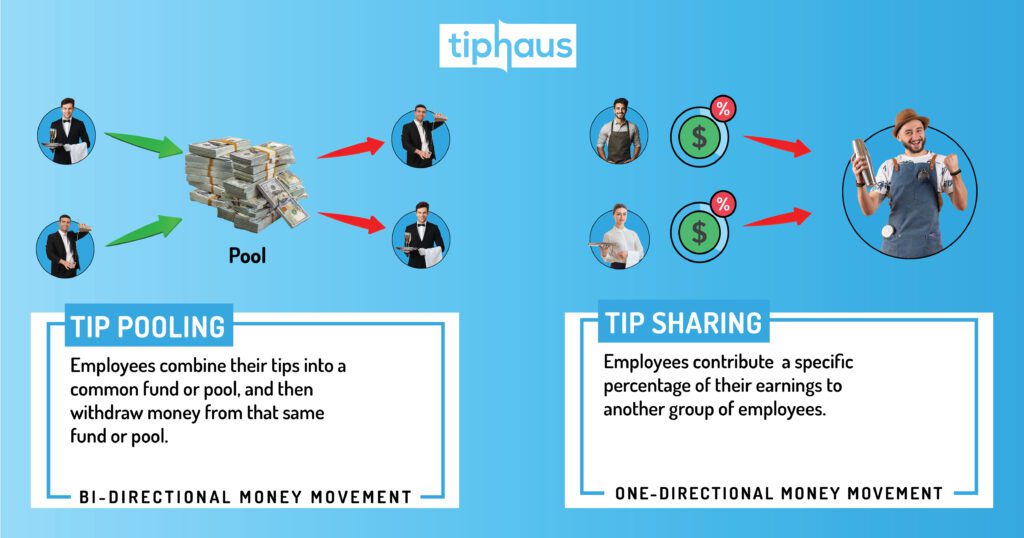
Running a restaurant is tough, especially when it comes to ensuring fair and transparent tipped employee tip distribution. You've heard the terms "tip pooling" and "tip sharing," but what do they mean, and which one should you use? Understanding the nuances of tip structures like pooling and sharing can greatly impact how a restaurant operates. So buckle up, because we're diving deep into the world of tip distribution!
Short on time? Watch this video for a quick overview of tip pooling and tip sharing.
Employees contribute a portion or all of their tips to a central pool, which is then redistributed based on predetermined criteria like hours worked, sales generated, or a combination of both.
Here’s an Example:
Imagine a coffee shop with three baristas hustling to keep customers satisfied. Each brings a unique skill set to the table, whether manning the espresso machine or handling cash registers. Here, tip pooling reigns supreme. It's a mutual agreement where tipped employees pool their tips into a common fund, later redistributed based on hours worked.
In our coffee shop scenario:
Total tips amount to $100 over 10 collective hours, translating to $10 per hour per employee. Following the redistribution formula:
The beauty of tip pooling lies in its equitable distribution, reflecting each tipped employee's contribution relative to their hours worked.
Pros:
Cons:
Employees directly share a portion of their individual tips with other employees who assisted them, typically based on factors like sales generated, total tips earned, or specific tasks performed.
Here's an example:
In a restaurant setting with two servers, one bartender, and a host, let's assume the following:
Now, let's implement the tip sharing rules:
Host Tip Share Calculation:
Bartender Tip Share Calculation:
After implementing these calculations:
Pros:
Cons:

There's no one-size-fits-all answer. It depends on your business model, staff structure, and desired outcomes.
Remember: Evaluate both options carefully, consider a hybrid model if necessary, and prioritize fairness, transparency, and open communication for a harmonious and successful tip distribution system.
Bonus Tip: Explore technology solutions designed to automate tip calculations and distribution, reducing administrative burden and ensuring consistency. Here's how TipHaus can address the challenges and streamline the tip distribution process:
Centralized Management:
Customizable Rules Engine:
Transparent Reporting:
Automated Calculations:
Compliance and Security:
Coffee Shop - Tip Pooling:
Restaurant - Tip Sharing:
By understanding the facts and nuances of tip pooling and sharing, you can make informed decisions that benefit both your employees and your business. Remember, a well-designed tip distribution system can contribute to a more motivated, collaborative, and ultimately, successful restaurant environment. TipHaus offers the flexibility and tools to create a system that works best for your business and your employees. To learn more, click here and see what TipHaus can do for your restaurant.